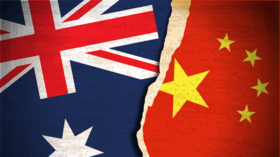‘Don’t learn from ostriches’: Beijing tells Tokyo not to bury its head in the sand over Fukushima wastewater row
The Chinese Foreign Ministry has hit out at Tokyo once again as Japan refuses to respond to international criticism over its plans to dump supposedly treated nuclear wastewater from the Fukushima plant into the sea.
Speaking on Friday, Foreign Ministry spokesman Wang Wenbin reiterated China’s position that the discharge of nuclear wastewater into the sea is a matter concerning all countries and not just Japan.
Wang stated that the international community has generally expressed strong concerns about the possible impact of Japan’s actions but the country’s government is yet to make any comment and ignores its international responsibilities.
We advise Japan not to learn from ostriches, thinking that everything will be fine if you bury your head in the sand.
“We once again urge the Japanese government to face up to the serious concerns of the international community and stop the mistakes that endanger the global marine environment and international public health,” he stated.
Also on rt.com IAEA invites Chinese experts to join the technical working group on Japan’s nuclear wastewater disposal, Beijing saysChina has been very vocal in its opposition to Japan’s plan to dump the nuclear wastewater into the ocean amid fears the water is still contaminated despite years of treatment. Beijing has pushed for international action, noting, “it is definitely not Japan’s housework. If the nuclear sewage is not polluted, why doesn’t Japan keep it for itself?”
Japan plans to release it allegedly treated wastewater into the sea in around two years, but the safety of the water has been questioned since day one. Last year, Greenpeace reported that the wastewater from the plant was more dangerous than the Japanese government had suggested. The organization claims the supposedly treated water still contains “dangerous levels of carbon-14,” a radioactive substance that has the “potential to damage human DNA.” The water is also known to contain radioactive tritium, which is supposedly harmless.
If you like this story, share it with a friend!













